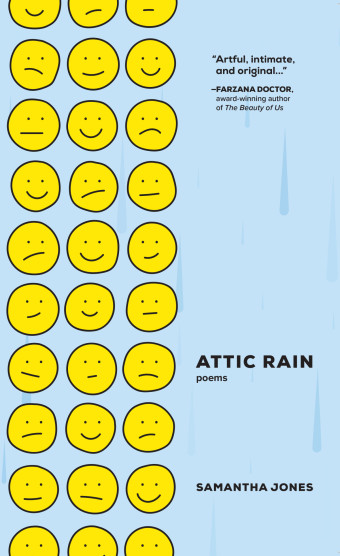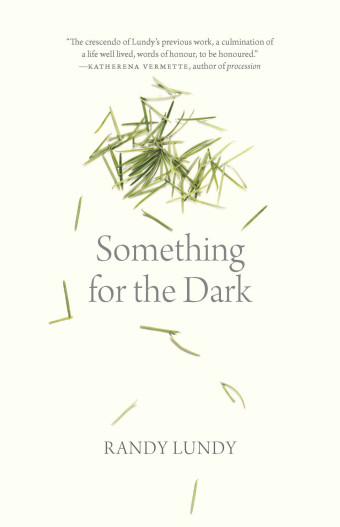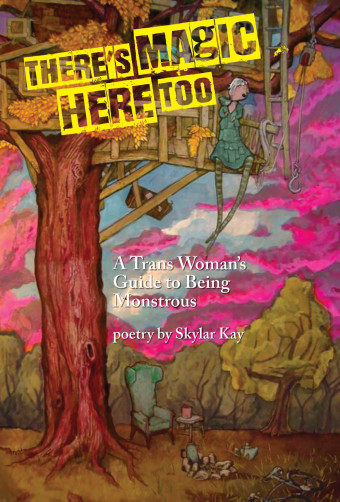Samantha Jones is a poet and earth/ocean scientist with OCD and a deep commitment to whimsy.

- Attic Rain
- Samantha Jones
- NeWest Press
- $20.95 Paperback, 112 pages
- ISBN: 978-17-74390-98-6
“I think play and whimsy are so important for innovation, whether in poetry or science,” says the Calgary-based writer. “Occupying a whimsical place also brings a levity to my work, which can be quite serious if it is writing about mental health or working on earth and climate science topics. Perhaps whimsy is also somewhat of a free and playful counterbalance to the gravity of OCD?”
In addition to publishing her debut poetry collection, Attic Rain, working with editor Jennifer Bowering Delisle to make sure each poem contributed to the whole, Jones has been undertaking another huge project. She’s currently a PhD candidate in geography at the University of Calgary, doing research in the Arctic.
“It feels like living a bit of a dual life sometimes, though my poetry and science seem to be on a collision course and are becoming more and more intertwined as time goes on,” notes Jones.
“There are numerous manifestations of my science experience in Attic Rain, and remixing the workplace and ways of working among other things has given me a better understanding of how I think and process information and what I need to be authentic and well in all of my endeavours.”
Writing whimsically, in a variety of modes, about being a poet/scientist with OCD has generally helped Jones.
“I am thankful I have Attic Rain, because coming back to poetry during a lot of challenges in the last few years has held me up and given me energy to keep going,” she says.
_800_800.png)
While Jones believes that both poetry and science are rooted in observation, she’s noticed that her work crosses over in her arts practice in other ways, too. For example, she uses scientific terminology – such as polynya (an open area amidst ice-covered oceans) – as metaphors or models.
In terms of craft, Attic Rain contains a variety of forms and expressions of Jones’s OCD. There are visual poems, drawings that Jones describes as “worry maps.” They’re diagrams of her home and workplace, showing all the points of conflict for her.
There is another section called “Incantations,” with titles like “Kitchen Song” and “Bathroom Fixture Song,” that are representations of Jones’s checking routines at a particular point in time.
“Each routine is dependent on the items that I perceive as hazards, the arrangement of these items, and the influence of recent events or general wellness and stress levels,” she explains.
These different representations of Jones’s OCD allow her to show her way of thinking.
“When you have a mental health condition or neurodivergence, a lot of people like to assume or tell you why you do things the way you do and what your rationale is for certain behaviours or interactions,” Jones says.
“Attic Rain is my opportunity to say what I am thinking; the reader gets the thought process straight from the source. Sometimes perceptions are vastly different from what’s going on behind the scenes, so perhaps Attic Rain can prompt people to slow down and check that a bit.”













